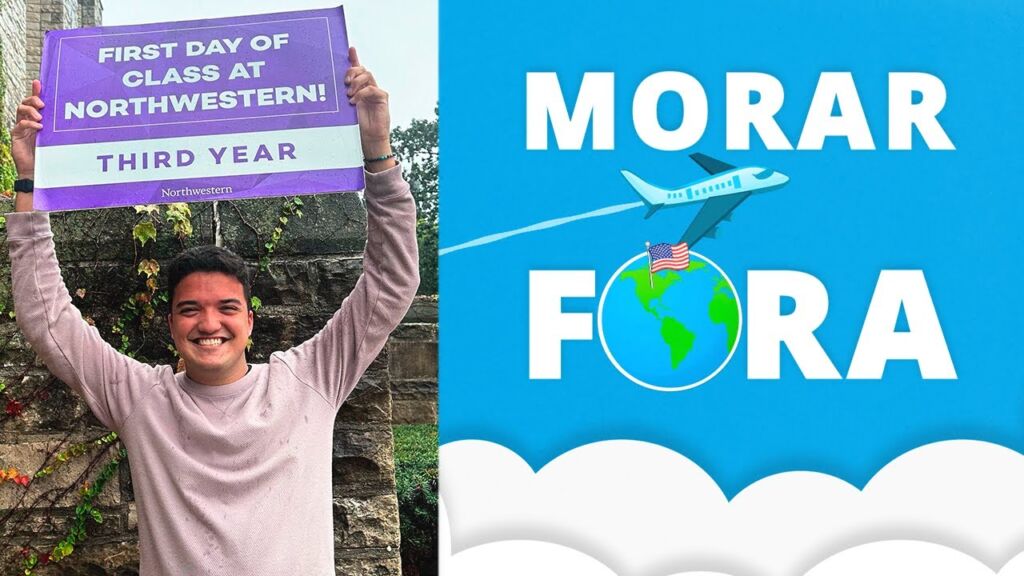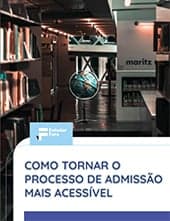Quem sonha em fazer a graduação nos Estados Unidos já sabe (ou precisa saber) que o processo de seleção das universidades de lá é totalmente diferente do vestibular brasileiro. Enquanto aqui os candidatos fazem apenas uma prova; lá, é preciso encarar uma série de etapas, que incluem, além de prova, teste de proficiência em inglês, análise de histórico escolar e de atividades extracurriculares, entrevista e envio de redações.
Leia a redação que ajudou brasileiro a ser aceito em Harvard e Stanford
As redações são cruciais no processo de seleção, já que permitem ao candidato mostrar quem ele é para além das notas em seu boletim. Esta etapa também é uma das que mais causa medo e dúvida nos estudantes: o que as universidades vão me perguntar? O que escrever para me destacar?
Sabendo disso, o Massachusetts Institute of Technology (MIT) resolveu divulgar as redações de alguns estudantes aceitos este ano. Confira a seguir os textos escritos pela norte-americana Gillian Belton:
Leia aqui os textos traduzidos para o português
Prompt: We know you lead a busy life, full of activities, many of which are required of you. Tell us about something you do for the pleasure of it. (100 words or fewer)
Response: My blog, Northern, is truly a labor of love. At first, Northern consisted of incredibly random posts and photographs, but it has evolved into a creative outlet where I’m able to express myself through the elegant lines of crisp photos. To me, Northern represents a place with no restrictions or limits, where I can post freely without any outside influences and just be myself. I love how as I change, Northern changes with me. When I scroll through my blog, I feel a sense of calm only comparable to a cool ocean breeze. Northern reflects a pure and unadulterated “me.”
Prompt: Although you may not yet know what you want to major in, which department or program at MIT appeals to you and why? (100 words or fewer)
Response: Ever since participating in the Girls Who Code program this summer, I have been in love with Computer Science. I love how one simple problem can be solved in so many different ways, allowing creativity and individuality to develop and thrive. I love the feeling of satisfaction when my program finally works, even if it only does the smallest task. I love how rewarding it feels to create something from nothing. But most of all I love the atmosphere of creativity and collaboration that CS fosters, making me feel like I’m a part of something bigger.
Prompt: What attribute of your personality are you most proud of, and how has it impacted your life so far? This could be your creativity, effective leadership, sense of humor, integrity, or anything else you’d like to tell us about. (200–250 words)
Response: Leadership is the gift that keeps on giving, continuously pushing me to grow and improve. Of my leadership positions, none were about gaining power or prestige. For each — “Technovation,” the Women’s Group, the school newspaper, “Girls Who Code” and Sources of Strength — I thought about how incredible it would be if sharing my enthusiasm for something could affect positive change. My passion, focus, and intensity come alive when I’m doing something I love. Therefore each time I was offered the opportunity to take the lead for an organization I was passionate about, it was a no-brainer.
I am proud of how leadership allows me to make differences in my community, from giving students a voice in our school’s newspaper, to organizing a panel of “Women in STEM” for the Women’s Group. In addition, I love the way leadership allows me to help others. It’s so rewarding to expose elementary school girls to the wonders of computer science, or even to just lighten a classmates’ workload when they are having a tough week.
But most importantly, leadership has forced me to grow as a person. I now know that being a leader is more than sending out emails and running meetings. Leadership is about understanding each individual and his or her way of thinking, because, in the end, it’s the personal connections that allow a group to thrive. I’ve grown so much already, but I don’t doubt that leadership will continue to teach me more than I can even imagine.
Leia aqui os textos traduzidos para o português
Prompt: Describe the world you come from; for example, your family, clubs, school, community, city, or town. How has that world shaped your dreams and aspirations? (200–250 words)
Response: For my entire life, I’ve lived on a peculiar border between the high-tech, fast-paced world of Silicon Valley and the rural, quiet rhythm of my hometown, Woodside. Growing up within these completely opposite environments has resulted in my deep appreciation for both cultures.
Perhaps inevitably, living within a twenty mile radius of the Google, Facebook, and Apple campuses taught me to love technology and to admire the staggering influence that it has in our constantly evolving world. I’m like a moth to the flame when it comes to the hustle and bustle of Silicon Valley, and I dream about the day I’ll be able to become a part of it.
On the other hand, my upbringing in Woodside taught me to value close and personal relationships. For example, at our local grocery store, I know all the employees by name. On top of that, my preschool teacher still comes over for dinner once a month. This close-knit community that I grew up in instilled in me a love of interacting with people that will stay with me for a lifetime.
Oddly enough, these contrasting cultures are what inspired my dreams to become a computer scientist. Computer science combines three of my favorite things: people, collaboration and technology, while simultaneously allowing me to thrive in an atmosphere of creativity and endless possibilities. In the end, it’s incredible that this strange juxtaposition of cultures that I grew up in was able to flawlessly combine into something unexpected, yet beautiful.
Leia aqui os textos traduzidos para o português
*Foto: campus do MIT / Crédito: divulgação













